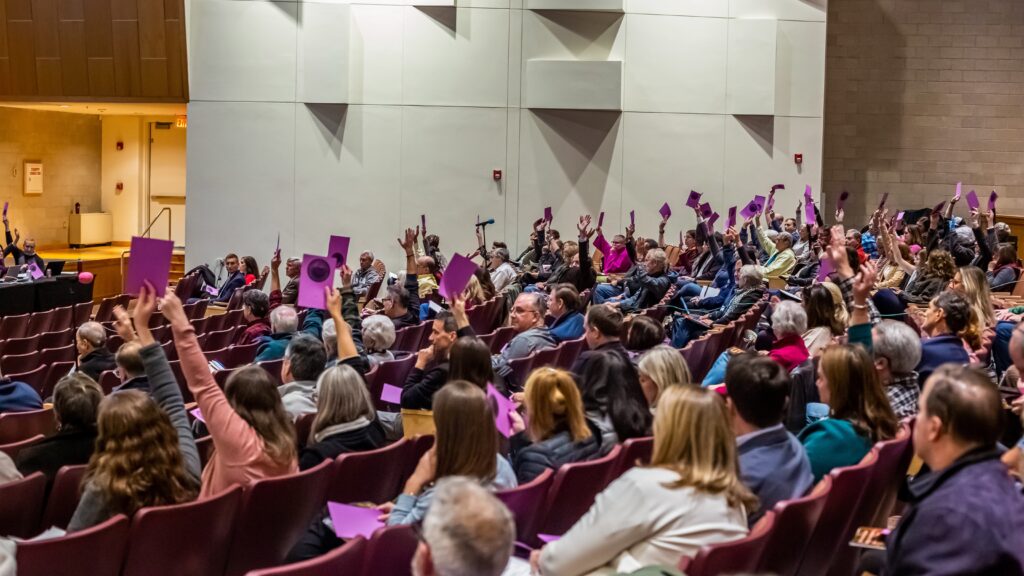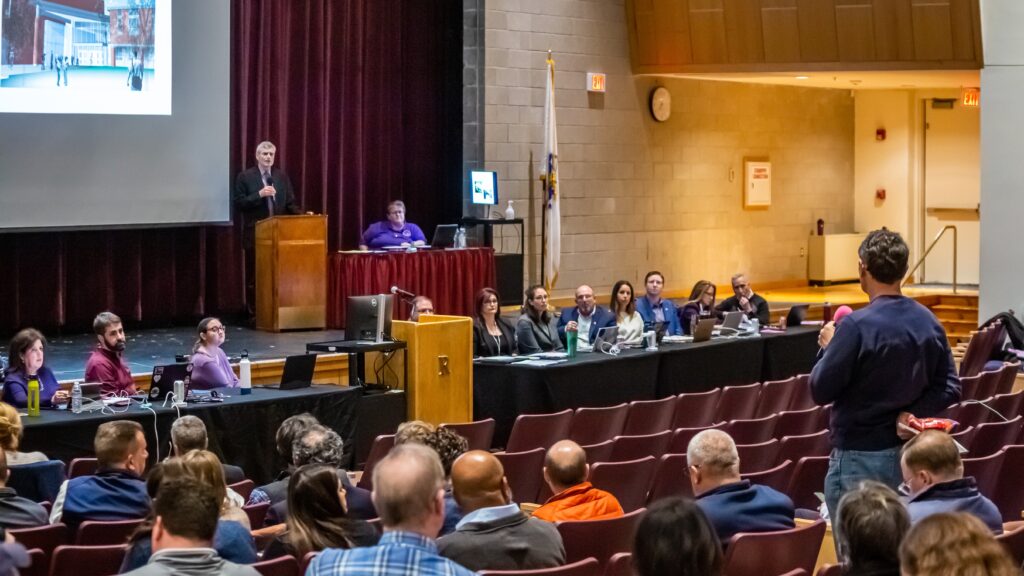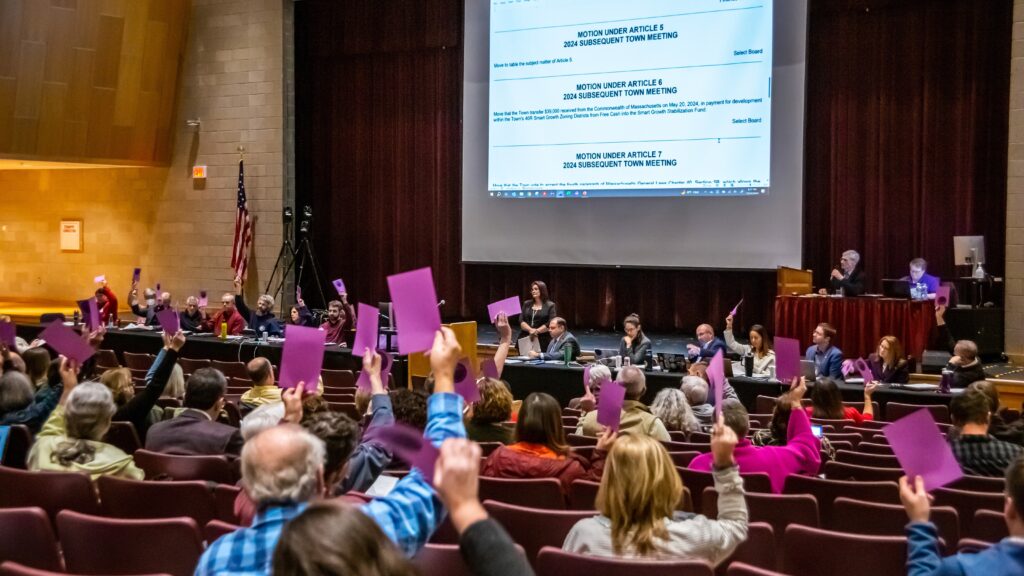
Article 10- Adoption of Mandatory Kilowatt Hours Charge to Qualify for Green Communities and Authorize Select Board to Execute Agreement and Necessary Documents
Reading, MA — Town Meeting approved Article 10 on Tuesday evening, adding a small charge to every electric bill in town. This approval completes the next step in Reading’s progression toward acceptance into the state’s Green Communities program. Two hundred and ninety-five other communities in Massachusetts are already participating in the program.
Select Board member Karen Herrick described the history of the five-year-long Green Communities process, which included the passage of a state legislative action allowing communities with municipal light departments to be accepted into the program. Herrick continued to remind Town Meeting that acceptance into Green Communities would provide the town with an initial grant of $180,000 for energy savings activities and allow the town to apply for further grants in the future. The extra charge should be about forty cents monthly for the average electric customer in Reading.
Town Meeting member John Sasso questioned the wisdom of sending money to the state and then having to apply to get it back. Town Meeting member John Arena asked if the town could create its own program to achieve the similar goals.

Member May Ellen O’Neal pointed out that if each household in Reading were charged the five dollars a year that this charge would cost, it would only amount to $48,000 for the town to use as opposed to what could be gained through the grant application process. After discussion about the freedom the town might have to leave the program, it was noted by member Alicia Williams that one town, Rochester, has done so recently; member Vanessa Alvarado noted that there had been no reporting about towns feeling “robbed” as a result of participation in the program.
The article was approved by a hand vote.
Article 15 – Additional Debt Authorization RMHS Field House Floor
By a 140-7 vote, Town Meeting also approved Article 15, an additional $1.3 million in debt for replacing the field house floor. Town Meeting had previously approved $1.7 million for the project. Still, since that time, it has been determined that including a maple floor for the playing surface would be preferred over the rubber-backed vinyl surface currently used in the field house. The vinyl will still be used on the track area of the floor.
“[The maple floor] is a better option for [player] safety and durability,” Superintendent of Schools Thomas Milaschewski noted.
Director of Facilities Joe Huggins explained that most of the extra cost results from taking over sixteen inches of concrete under the playing surface and then building it back up to level with the vinyl. Milaschewski commented that player safety was the primary reason for the change. He also stated that the maple flooring could last as long as seventy years if maintained and that the vinyl flooring has a twenty-year usable life.

Article 3 – Amend the Capital Improvement Program FY25 – FY35
Article 4 – Amend the FY25 Budget
Article 7 – Dedication without further appropriation of 40R Funds to Smart Growth Stabilization Fund
Articles 3 and 4 amended the capital plan and also amended the Fiscal Year 2025 budget. Both were approved by Town Meeting. A transfer of $39,000 that was paid to the town for its 40R developments into a Smart Growth stabilization fund was approved under Article 4. Town Meeting voted to have this occur automatically in the future under Article 7.
Article 8 – Transfer from Free Cash to Opioid Settlement Receipts Special Reserve Fund
Town Meeting approved Article 8, which transferred $87,157 of the opioid settlement money to a special reserve fund used for substance abuse programming.
Article 11 – Amend General Bylaw Section 8.8.1.3 – Effective Voice Control of an animal
Article 12 – Amend General Bylaw 8.8.3.2 – Town Forest Number of Unleashed Dogs
Article 13 – Transfer Funds for Removal of Red Pines & Invasive Species from Town Forest
Town Meeting approved Article 11, which defines effective voice control of dogs in the Town Forest, then passed Article 12, which prohibits a dog walker from having more than two unleashed dogs in the forest. Article 13 approved $150,000 for removing dead red pine trees in the Town Forest and some invasive species such as buckthorn, tree of heaven, black swallowwort, and Japanese knotweed from the forest.
Article 14 – Transfer Grove Street Lot 5 to Conservation Commission
The last article of the evening, Article 14, was approved by a vote of 127-3 and transferred control of the Town Forest parking lot on Grove Street to the Conservation Commission. Town Manager Matt Kraunelis explained that this transfer was part of the agreement with the state to allow the lot to be built next to a nesting area.
Town Meeting adjourned at 10:30 pm and will reconvene on Thursday night.
